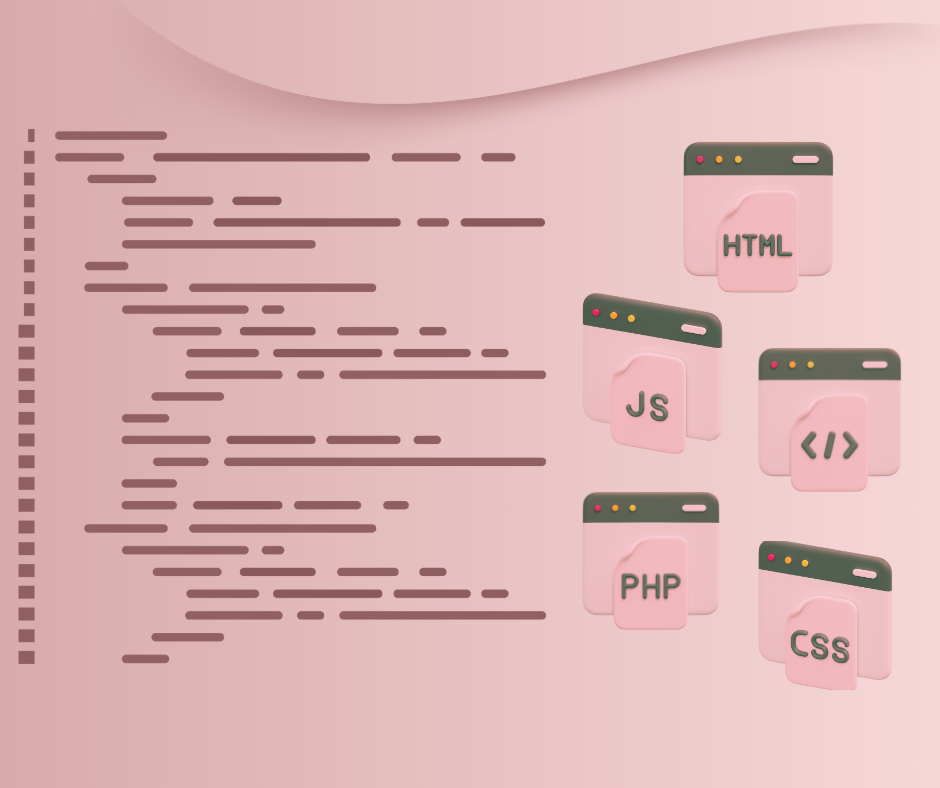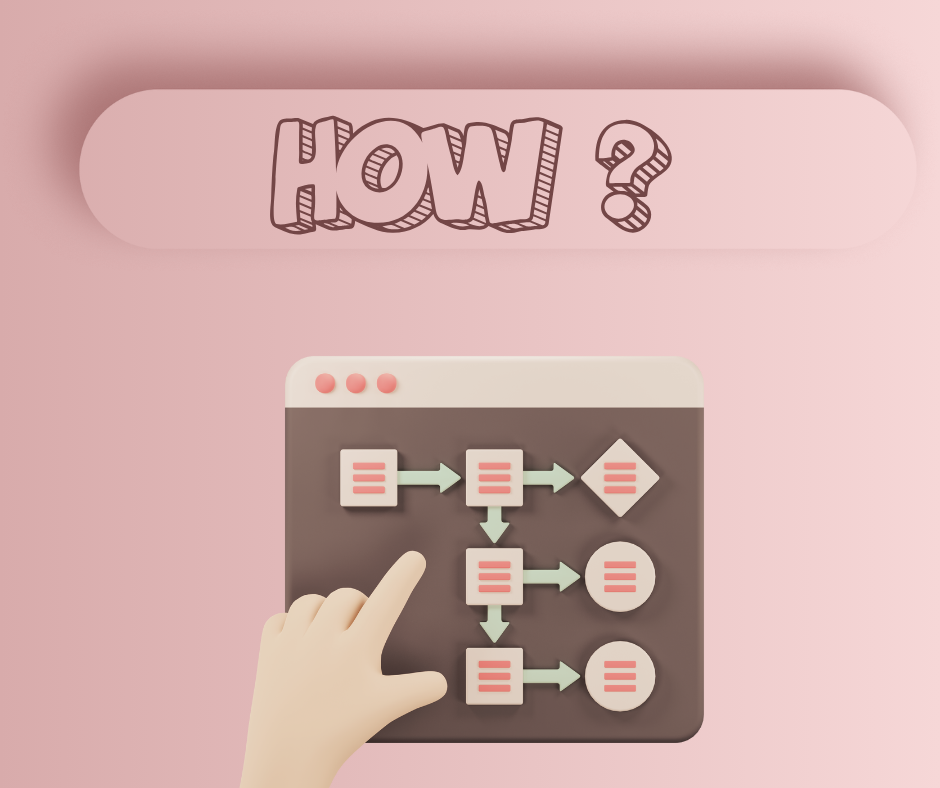Ways to Learn Algorithm Programming
In a world that is increasingly controlled by technology, algorithms have become an essential element in our daily lives. From the search engines we use to find information to the mobile applications we use to communicate with others, many of the technologies we rely on are based on algorithms.

Concept of Algorithms
An algorithm is a set of logical and sequential steps used to solve a specific problem or accomplish a particular task. It can be considered as a recipe or a set of instructions that tells us how to do something.

Characteristics of Algorithms
· Clarity:
The steps in the algorithm must be well-defined and clear.
· Finiteness:
The algorithm must terminate after a finite number of steps.
· Generality:
The algorithm should work for all input cases that belong to the same problem.
· Inputs and Outputs:
The algorithm should specify the inputs (data) it needs and the outputs it will produce.

Types of Algorithms
· Computational Algorithms:
These algorithms are used to perform arithmetic operations such as addition, subtraction, multiplication, and division.
· Search and Sort Algorithms:
These algorithms are used to search for specific elements in a data set or to sort data in a particular order.
· Compression Algorithms:
These algorithms are used to compress data in order to reduce its size.
· Encryption Algorithms:
These algorithms are used to convert data into an encrypted format to protect it from unauthorized access.

The Importance of Learning Algorithms
Learning algorithms is a valuable skill that can help you in many different careers. Some of the benefits of learning algorithms include:
· Improving Problem-Solving Skills:
Algorithms are powerful tools that can be used to solve a variety of problems. By learning algorithms, you will learn how to think systematically, analyse problems, and develop effective solutions.
· Enhancing Programming Skills:
Algorithms are the foundation of programming. By learning algorithms, you will gain a better understanding of how programs work and be able to write more efficient and effective programs.
· Increasing Job Opportunities:
There is high demand for programmers with algorithm skills. By learning algorithms, you will become more marketable in the job market.
· Improving Logical Thinking Skills:
Algorithms require logical and analytical thinking. By learning algorithms, you will develop critical thinking skills and improve your ability to solve problems in all areas of life.
· Enhancing Mathematical Understanding:
Many algorithms are related to fundamental mathematical concepts. By learning algorithms, you will enhance your understanding of mathematics and be able to apply it more effectively in your daily life.
The Basic Steps to Learning Algorithmic Language
Learning algorithmic language is a valuable skill that enables you to solve problems, analyse data, and develop programs efficiently
Here are some basic steps to learn algorithmic language:
1-Understand the Fundamentals of Computer Science:
· Basic Concepts
· Data
· Data Structures
· Algorithms
· Time Complexity
· Space Complexity
· Programming
Learn at Least One Programming Language
Choose a programming language like Python or Java.
Understand basic programming concepts such as variables, conditions, loops, and functions.
By mastering these steps, you'll be on the right path to efficiently learning and applying algorithms in different programming tasks.
2- Start with Simple Algorithms:
Focus on common algorithms:
· Binary Search
· Sorting (Bubble, Insertion, Merge)
· Shortest Path (Dijkstra)
· Compression (Huffman)
· Encryption (RSA)
· Understand how each algorithm works and apply it to simple examples.
3. Practice Writing Algorithms:
Start with simple exercises and gradually increase the difficulty of the exercises.
Use debugging tools to find errors in your code.
Share your solutions with others to get feedback.
4- Deepen Your Knowledge of Algorithmic Languages:
Learn Design Patterns:
Concepts such as inheritance, abstraction, and encapsulation.
Apply design patterns in complex algorithms.
Learn advanced algorithms:
Advanced search algorithms (such as A*)
Machine learning algorithms (such as K-means)
Image processing algorithms (such as Hough Transform)
5- Use Available Resources:
Books:
"Introduction to Algorithms" – Thomas H. Cormen
"Algorithms: Design and Analysis" – John Clements
Online Courses:
"Introduction to Algorithms" – Stanford University (Coursera)
"Algorithms and Data Structures" – University of California, Berkeley (edX)
Websites:
Khan Academy
GeeksforGeeks
Mobile Apps:
AlgoDaily
Data Structures and Algorithms
6- Join Programming Communities:
Participate in programming forums and support groups.
Ask questions and get help from other programmers.
Share your solutions and experiences with others.
7- Never Stop Learning:
Developing your algorithm skills requires continuous practice.
Stay updated on the latest developments in the field of algorithms.
Challenge yourself by learning new algorithms and applying them to real-world problems.
Applications of Algorithms
· Computer Science:
Algorithms are used in all aspects of computer science, from software development to operating system design.
· Mathematics:
Algorithms are used to solve complex equations and mathematical problems.
· Medicine:
Algorithms are used for diagnosing diseases and developing treatment plans.
· Engineering:
Algorithms are used in product design and process development.
· Finance:
Algorithms are used to analyse financial data and make investment decisions.
Examples of Algorithms
· Binary Search Algorithm:
This algorithm is used to search for a specific element in a sorted list.
· Bubble Sort Algorithm:
This algorithm is used to sort a list of data in ascending or descending order.
· Dijkstra's Algorithm:
This algorithm is used to find the shortest path between two points in a graph.
· RSA Algorithm:
This algorithm is used to encrypt and decrypt data.
How Algorithms Are Used in the Real World:
· Search Engines:
Search engines use algorithms to rank search results based on the relevance of each result to the search query.
· Recommendations:
Applications like Netflix and Spotify use algorithms to offer recommendations for movies and music based on user behaviour.
· Image Recognition:
Image recognition software uses algorithms to identify objects in images.
· Artificial Intelligence:
AI techniques such as machine learning and computer vision rely on algorithms to function.

How Algorithms are used in the Real World
· Search Engines:
Search engines use algorithms to rank search results based on the relevance of each result to the search query.
· Recommendations:
Applications like Netflix and Spotify use algorithms to provide recommendations for movies and music based on user behaviour.
· Image Recognition:
Image recognition programs use algorithms to identify objects in images.
· Artificial Intelligence:
AI techniques such as machine learning and computer vision rely on algorithms to function.
Conclusion
Algorithms are a smart investment in your future. By learning algorithms, you will acquire valuable skills that will help you in all areas of your life.



